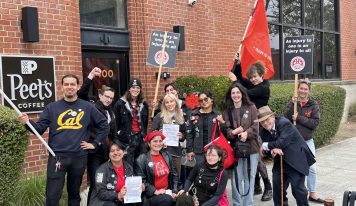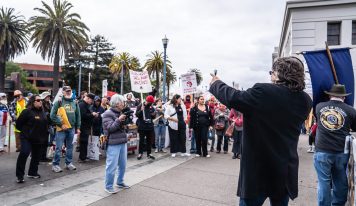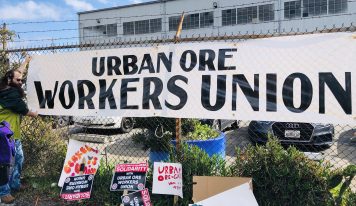Last Saturday on May Day, workers around the US marched peacefully to have their voices heard while amplifying the broader labor movement, acknowledging the Haymarket Incident of 1886, which became a symbol for the international struggle for workers’ rights and led to the eight-hour workday.
In San Francisco, the focus wasn’t only on the worker struggle, but also on other demands such as supporting the PRO Act, freeing Mumia Abu-Jamal, ending the US blockade on Cuba, and many more.
This march also memorialized the San Francisco General Strike in 1934, a pivotal moment in US history that led to the rise of organized labor on the West Coast and beyond. Numerous local labor union chapters joined after fighting strenuous battles against union-busting efforts and layoffs by their employers.
“If we were to describe organized labor in San Francisco, it’s not a curse word,” said Olga Miranda, president of the janitor’s union, SEIU Local 87. “It’s actually a very good word. We are defiant. We beat the odds. We are women. We are Black. We are Brown. We are Asian. We are essential because we are organized labor.”
The most consistent theme overall was to support the PRO Act, which stands for Protecting the Right to Organize Act. If passed, this law would provide worker protections and prevent employers from disrupting union membership campaigns. For many, this law can potentially be a huge step towards strengthening the labor movement and workers’ rights, especially for marginalized communities.
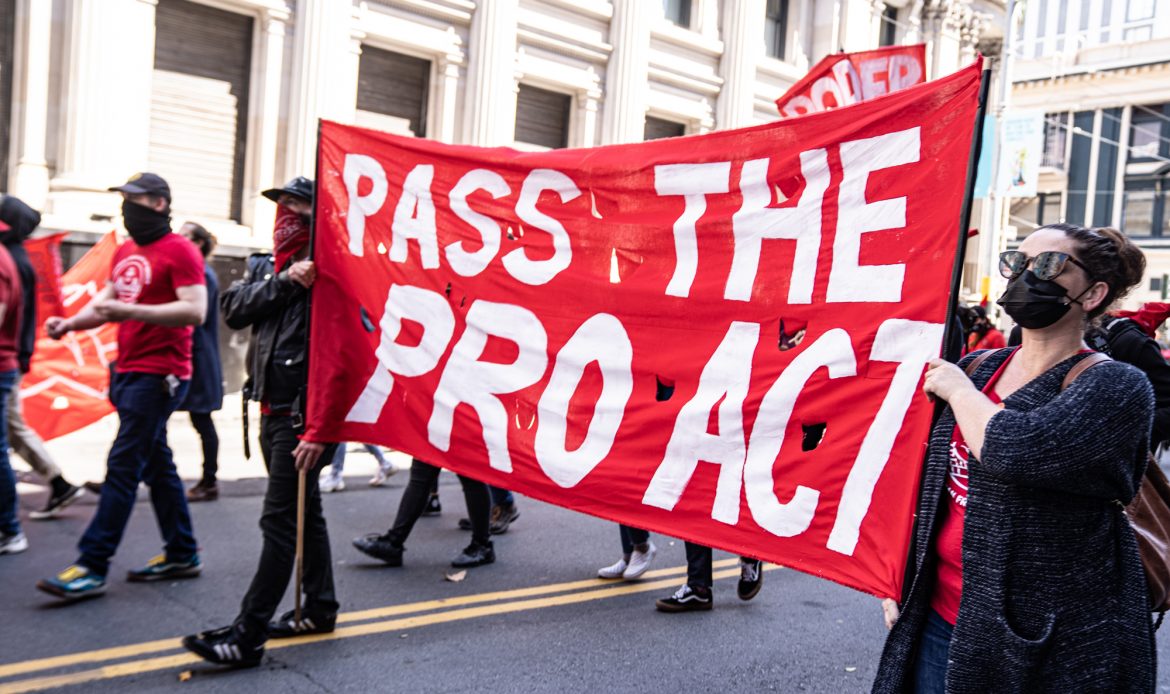
“This country desperately needs a strong organized labor movement to win real progress on issues like systemic racism, income inequality, and climate change,” said Max Turner, a labor organizer with the San Francisco chapter of Democratic Socialists of America (DSA). “Workers need these protections so we can start fighting back and shift power away from corporations and the rich, and instead towards the working class.”
Turner also emphasized that current labor laws generally work in favor of employers, weakening worker protections, and result in retaliation after attempting to unionize. As part of the local labor movement, he, along with other organizers, unionized alongside workers from Anchor Brewery, Tartine Bakery, and just recently, Dandelion Chocolate to form unions due to unfavorable working conditions, low wages, and attempted layoffs.
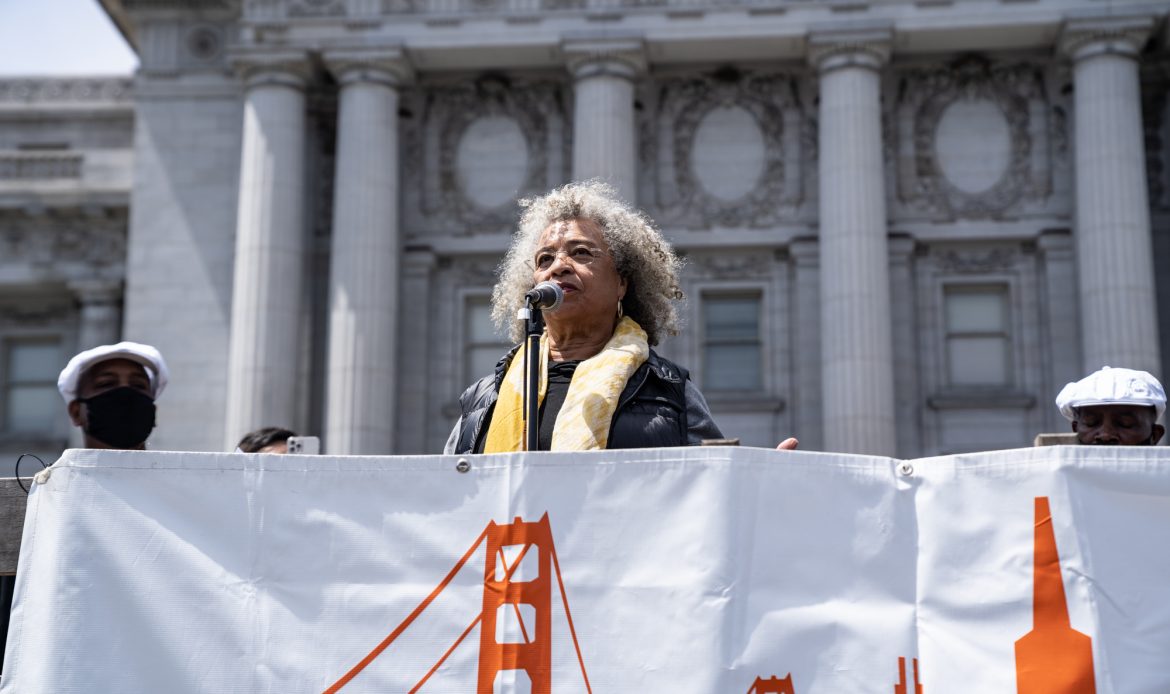
Workers marched from the beginning of Market Street at the Embarcadero and later gathered in front of City Hall across from the UN Plaza. Speakers, such as author and activist Angela Davis, came out in support of the labor movement and recently became a member of ILWU Local 10.
“We all know that the best way to prevent workers’ unity is to use racism, patriarchy, and xenophobia,” Davis said to the crowd.“And therefore, the role of the working class is to be upfront and the effort to dismantle systemic and structural racism.”
Trent Willis, president of ILWU Local 10, amplified that sentiment even further.
“The reason why we need to stop systemic racism is because systemic racism has been in the way of the labor movement. Since the labor movement’s inception, which the labor movement started when Black people were brought over here as slaves—that was the labor movement back then also. And when you stand up for the labor movement, you’re standing against slavery. You’re standing against systemic racism, and most of all, you’re standing against systemic oppression.”
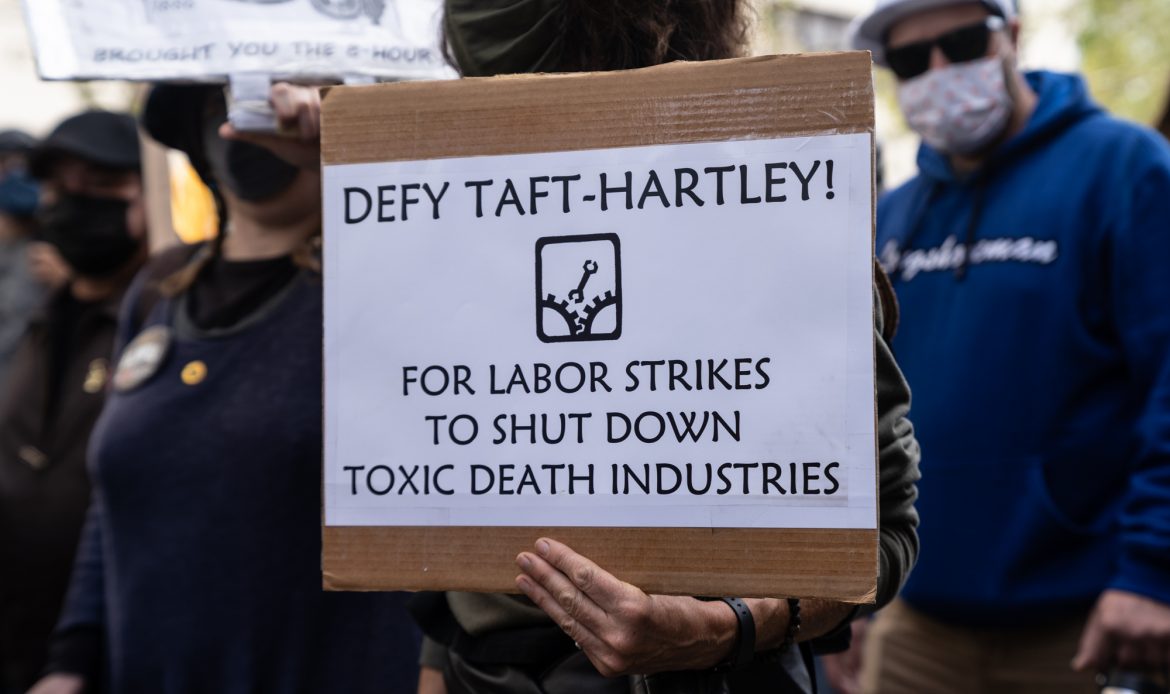
Photos by Savannah Kuang



